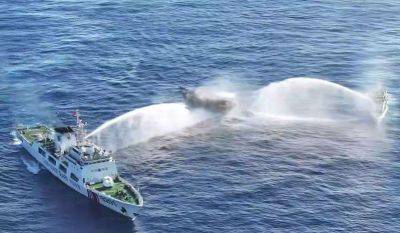Why the Maritime Zones Act is the next crucial step for national sovereignty
As an archipelagic and maritime nation, the Philippines' waters are pivotal to its food and economic security and overall national interests. With more than 7,000 islands held together by waters spanning a total of 220 million hectares, some 60% of the population, or 55.3 million Filipinos, live in coastal communities. These waters are teeming with resources driving and connecting niche economies interspersed across the archipelago.
A 2017 valuation study by eminent marine scientist Dr. Rhodora Azanza found that the country’s total coastal and marine ecosystems’ potential contribution to the Philippine economy per year is valued between US $966.6 billion and US $1.5 trillion, based on 2007 prices. For a nation reliant on the vibrant bounty of the seas, failing to maximize, sustain, and protect the use of these extraordinary resource pools is a travesty.
Having a concrete idea of what you own (territory) and knowing the rights and responsibilities to such ownership (international and domestic law) are necessary steps in securing and governing our waters and seas. Thus, clearly delineating Philippine maritime zones is essential for government to properly harness natural resources and tap the blue economy’s potential.
Amid geopolitical risks and tensions in the West Philippine Sea, both houses of Congress have recognized the penultimate role of legislation—that the passage of a maritime zones law anchored on the United Nations Convention on the Law of the Sea (UNCLOS) is needed to define the country’s geographical metes and bounds.
With such a law in place, the Philippines is enabled to assert sovereignty and sovereign rights over the country’s maritime and air spaces. Recent pronouncements by the National Task Force for the West Philippine Sea and various government agencies underscore the urgency for the passage of relevant maritime legislation. The proposed Maritime Zones Act adheres to UNCLOS and is a domestic right to reinforce the 2016 Philippine Arbitral Award, the lawmakers have said.
Following the House of Representatives’ unanimous approval of House Bill 7819 or the proposed Maritime Zones Act, the Senate overwhelmingly established the Special Committee







